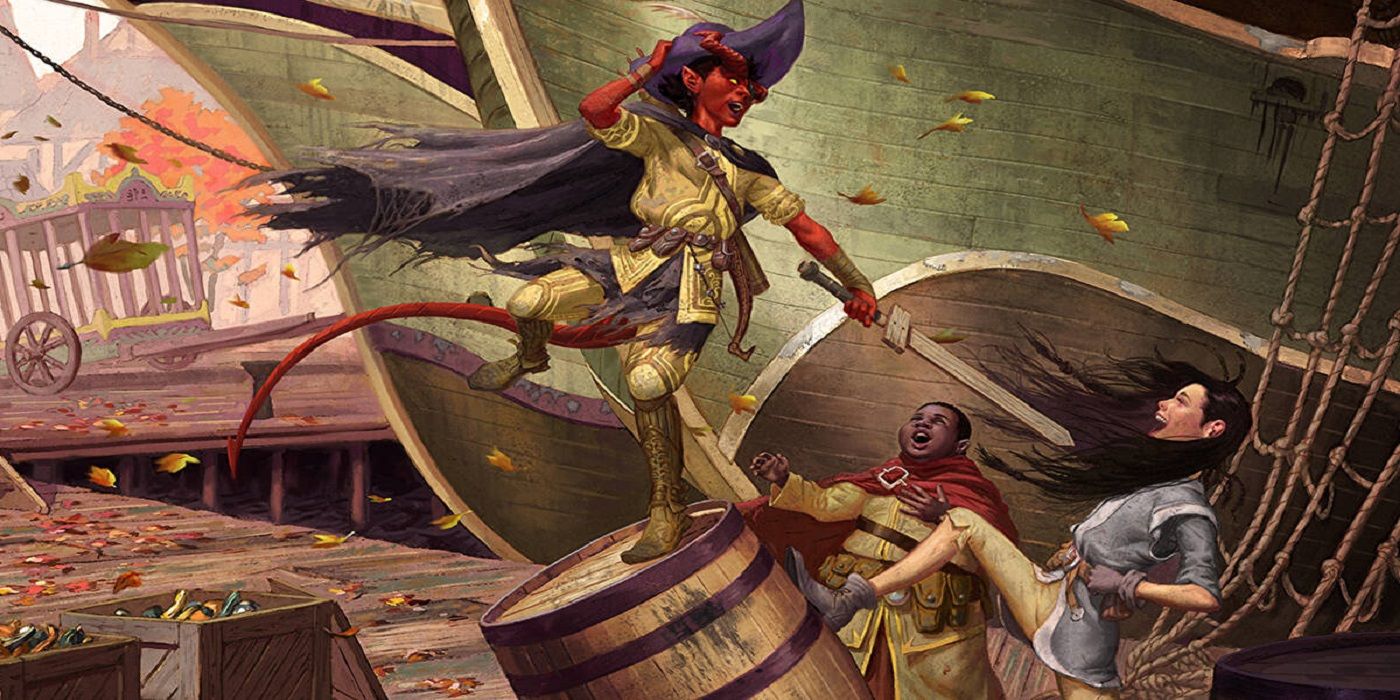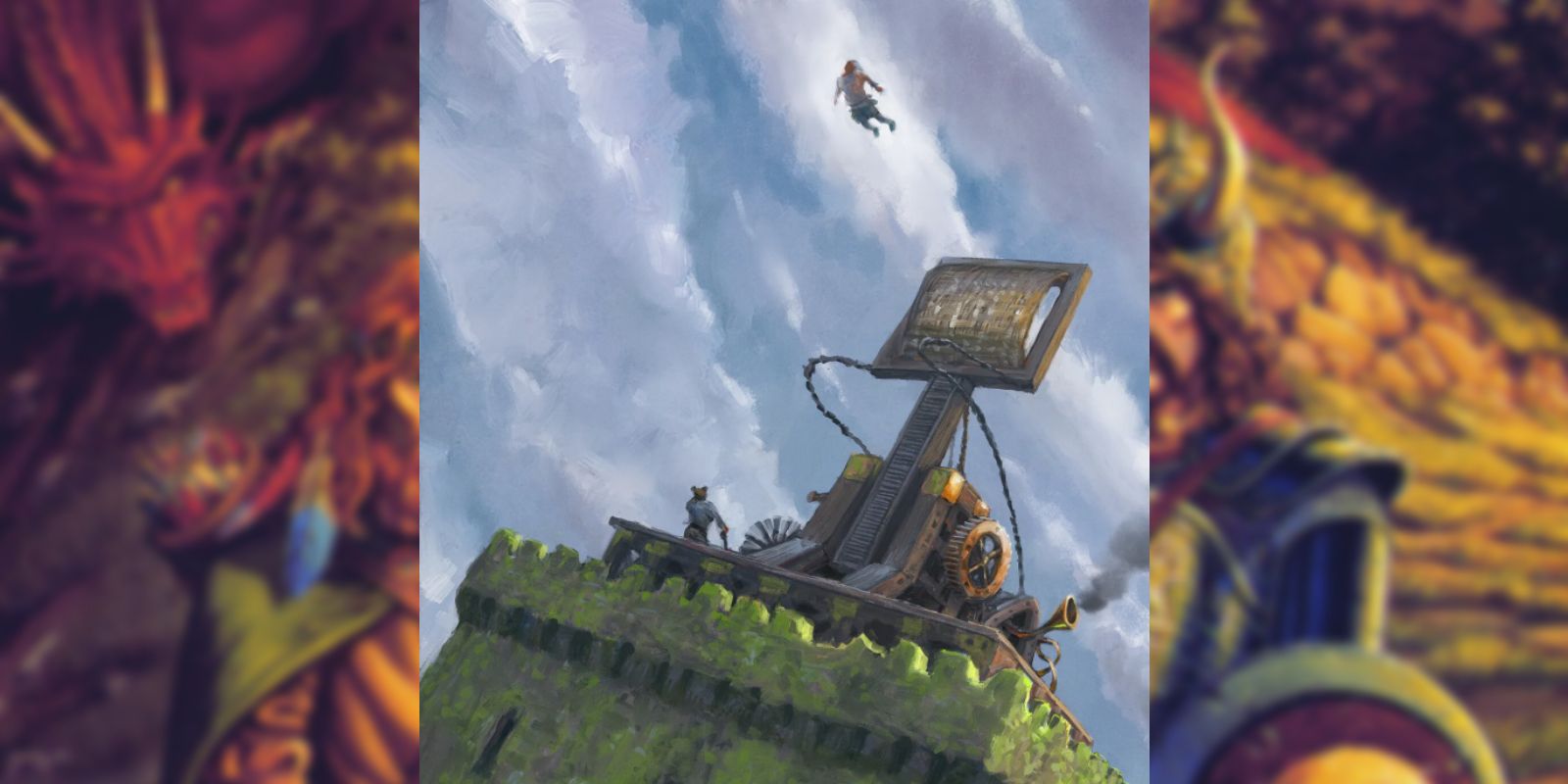In Dungeons & Dragons, there are many astounding spells available for magic casters, but there are also some that are generally less useful, and could make great cantrips to allow players to still play around with them and not waste a spell slot. Many of these spells could come in handy for certain situations, but may not be seen as necessary enough when weighed against the other spells which could be prepared instead. Since cantrips have the benefit of not needing to be prepared in advance or having to take up a spell slot it makes them much easier to employ, and frees players up for more innovative uses for them.
Many DnD cantrips can be used creatively by players to be very helpful in battles or simply humorous for the story. The idea behind a cantrip is that they are much weaker bits of magic - not something that is likely to win the fight, but can assist the party in some way. Meanwhile, there are several spells that require advanced preparation and use spell slots but really aren't worth it. These spells would be better utilized as cantrips rather than being ignored or forgotten about and could make the overall game more fun.
Many D&D Spells Just Aren't Useful Enough To Waste A Spell Slot On
There are several spells in the DnD universe that could be creatively used in funny or beneficial ways like cantrips often are. Some cantrips like prestidigitation or thaumaturgy really aren't all that different in scope from spells like jump or distort value. The advantages of these spells are fun and could be put to great use, possibly even applying the Rule of Cool where a DnD DM allows, but often don't justify taking a spell slot that could be used for something more potent.
D&D's Jump Spell Really Works Better As A Cantrip
In DnD fifth edition, jump is a first-level spell that requires a grasshopper's hind leg to cast and will enable a creature to have triple their normal jump distance for one minute. While this could be quite useful in certain situations, it will generally not be something that gets much use as is.
However, if changed to a cantrip with a length of one round rather than one minute, it would not only be made much more effective and useful but could be applied for entertainment value occasionally as well.
The Illusionary Spell Distort Value Would Be A Fun D&D Cantrip To Use
The spell distort value is part of the Acquisitions Incorporated content pack, and it can be used to make an object take on the illusion of being either doubled or halved in size. This spell could be a lot of fun, would be useless in DnD combat situations most of the time, especially because at the first level, it is only useable on an object that is one foot long in any direction, so while it can have creative uses, it is not going to distort something of incredible size.
Catapulting As A Cantrip in D&D Could Be So Much More Fun
The image the term "catapult" conjures is actually much more impressive than the spell itself. The catapult spell essentially states that an object that weighs less than five pounds and is within 60 feet of the caster can be magically flung in a straight line up to 90 feet in any direction, stopping if it hits a solid surface or creature. It does do 3d8 bludgeoning damage if it strikes something, but the usefulness of this as an attack seems much less beneficial than numerous other attack spells that casters have at their disposal.
The Gods Of D&D Can Grant Divine Favor, But It's Not That Favorable
A righteous DnD Paladin character has the opportunity to use the spell divine favor to gain the divine radiance buff. This bonus action buff is bestowed on them by their gods and provides the character with an extra 1d4 radiant damage on any weapon attacks for one minute. This sounds excellent if it didn't require the use of a spell slot in order to accomplish. An added 1d4 is not much damage, as even with perfect rolls for all ten rounds, it would only add another 40 damage, with low odds of it rolling that high.
When No Rogue Is Available, D&D's Find Traps Spell Can Help
The find traps spell is a second-level spell that can sense the presence of any trap in the caster's line of sight for one round. This spell does not tell the character the location of each trap, but merely that there is one in the vicinity, which means that often a DnD rogue would be far more powerful in this situation. Additionally, it only lasts for one round before needing to be cast again, so walking through a hallway or into several rooms would require it to be cast multiple times, using up several spell slots.
Often, a high perception roll could be just as effective, if not more so, in discovering traps when adventuring in an area or even in a single room. Therefore, having to prepare the spell and then use a coveted spell slot to cast it is impractical except in very rare situations. As a cantrip, this could be much more useful to be able to cast it when a player is suspicious of an area, and if a trap is sensed then it can be followed up with a perception check to find the source.
Generally, most of the best cantrips in Dungeons & Dragons can be used in a way that does not overpower the party or create a meta-gaming situation, but which can be used to guide and help players in small ways. Also, when they can be used to create an entertaining or humorous situation, it is even more worth it. The spells listed here would all be put to better use if they were categorized as cantrips where they could be more easily cast rather than requiring as much as they do for little reward.
Source: Dungeon Dudes/YouTube







